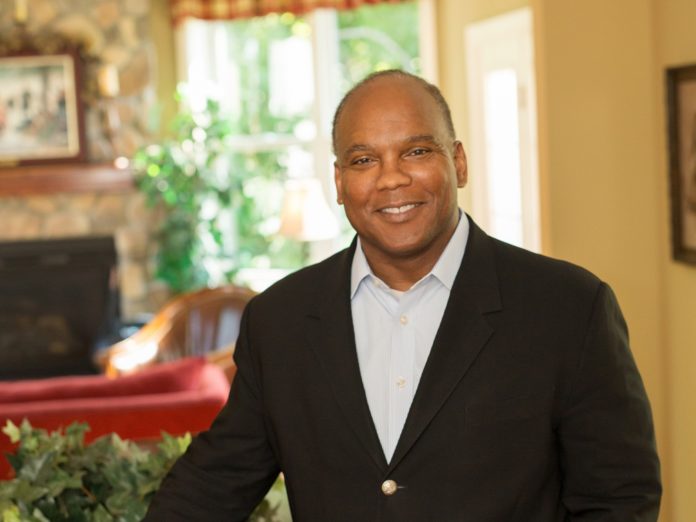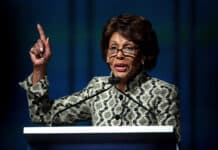As the Twin Cities and our leaders look to rebuild, consider needed reforms in policing, and pursue justice for George Floyd, the enduring question is how to address the consistent disparities between African-Americans and other ethnic groups. It is time we address an uncomfortable truth. The chief barrier to the advancement of the African-American community is the rise of single parent households – not racism, police brutality, or white privilege.
Our country will not meaningfully resolve the significant economic, health, and educational disparities between black Americans and other groups until we address the single parent household crisis plaguing the African-American community.
We can do this through legislation, community engagement, and by shifting values in the African-American community to emphasize two-parent families.
The Dramatic Rise of Births Outside of Marriage in the African-American Community
The detrimental impact on children of their parents not being married was first described over fifty years ago in the Moynihan Report. The Moynihan Report concluded that in a majority-black community, the main predictor in growing up poor was not race but being born to parents who were not married.[1]
The single parent crisis has only worsened since the Moynihan report was issued: the black community has experienced almost a tripling of unmarried births. In 1965, 25 percent of child births in the black community occurred outside of marriage.[2] Today, it is 69.4 percent: 68 percent in urban areas 79 percent in rural areas.[3]
Children Born to Unmarried Couples are Less Likely to Succeed
Children born to unmarried couples are less likely to succeed educationally, emotionally, and financially.[4] Children born in single-parent homes are more likely to have contact with the criminal justice system, resent authority, join a gang, and have substance abuse issues. They are also more likely to suffer from mental health issues, obesity, poverty, homelessness, and child abuse. The effects are multigenerational: less-educated parents are less likely to marry and it begins a cycle of entrapment in the underclass.[5]
I don’t need the data to tell me this. I’ve seen it firsthand in my own family.
My Firsthand Experience with the Single-Parent Crisis
I was born in 1963, the year before Lyndon B. Johnson began the war on poverty with a series of well-intended government programs. In 1968, my father returned from the Vietnam War and my parents divorced. My mother moved my four siblings and me from Fort Campbell, Kentucky, where my father was stationed, to live with my grandparents in Harlem. On our first day there, we were robbed on our way to my grandparent’s apartment – it was the middle of the day and there were no police officers in sight (that is the reality when police officers are “removed” from the community).
There was a common theme in the public-housing project that we lived in and the school I attended: there were mothers and children, but an absence of fathers. The only men in the neighborhood were drunks, drug addicts, or drug-dealers. For three years, that was my world. I saw the stressful and worried look on my mother’s face every night when it was time for bed. New York City never sleeps and in Harlem the screams, crime, and violence never seemed to end. My mother, despite her best efforts, could not raise all five us in that environment. My father came to Harlem and retrieved my brother and me to live with him in Oklahoma.
I am younger than all of my siblings and cousins. Between my age and the geographic divide, which resulted in semi-regular visits back east, I was able to watch them over the decades and see how their fatherless existence and personal decisions impacted their lives. The outcomes were similar to what is emblematic in the African-American community: poverty, crime, drug addiction, and joblessness. Most did not marry and they had kids outside of marriage. If they did marry, the marriages were short-lived and ended in divorce.
Of my four siblings, three went to prison. All four used drugs. One became addicted to heroin and contracted HIV/AIDS from intravenous drug use. He later died from complications related to AIDS. Sadly, my nieces and nephews followed a similar path: high school dropouts, drugs, joblessness, and dependency. Last year, my 42-year-old niece died from a drug overdose.
How to Address the Single Parent Crisis
The story of my extended family is emblematic of the crisis plaguing the African-American community. America has made significant strides in combating racism. However, the African-American community is mired in self-inflicted wounds and a mindset of victimization. The Democratic policies of the last fifty years have only exacerbated the issue.
We can address the crisis through legislation, community engagement, and by shifting values in the African-American community to emphasize two-parent families:
- Federal legislation to remove the marriage penalty in government programs and provide a tax deduction for those who complete marriage preparation.
- Support and promote nonprofits that include education on the value of marriage and the negative impact father absence has on children and the community.
- Partner with schools, community leaders, and Black churches to extol the values of marriage for children and for married couples.
We Must Acknowledge & Address the Single Parent Crisis in Order to Heal
Given the dramatic rise of births outside of marriage, it is no surprise that we continue to see the African-American community underperform and disproportionally suffer from incarceration, violence, and interactions with the police. This is no excuse for brutality and we must pursue policing reform. But we must also examine the hardened realities of police officers before we castigate the entire group for the actions of a few, let alone abolish police forces entirely.
The flashpoint of the last several weeks does not have to be a repeat of the flameout in 1968, 1992, or 2014. Instead, we should turn George Floyd’s tragic death to a re-examination of the single parent crisis in the African-American community and the government polices enabling men to abandon their responsibilities. As Barack Obama rightly declared, the “hole a man leaves when he abandons his responsibility to his children is one that no government can fill.”
Let us remember this lesson as we seek to rise up from the ashes of Lake Street, pursue policing reform, and rebuild our community. In doing so, we must candidly discuss how the single parent crisis that reverberates across America hurts us all, whether we acknowledge it or not.
###
[1] Daniel Patrick Moynihan, The United States Department of Labor, “The Negro Family: The Case for National Action”, (1965) https://liberalarts.utexas.edu/coretexts/_files/resources/texts/1965%20Moynihan%20Report.pdf
[2] Id.
[3] U.S. Department of Health and Human Services, “National Vital Statistics Reports – Births: Final Data for 2018”, (Nov. 27, 2019), www.cdc.gov/nchs/data/nvsr/nvsr68/nvsr68_13-508.pdf; Gretchen Livingston, Pew Research Center, “Family Life is changing in different ways across suburban and rural communities in the U.S.”, (June 19, 2010), https://www.pewresearch.org/fact-tank/2018/06/19/family-life-is-changing-in-different-ways-across-urban-suburban-and-rural-communities-in-the-u-s/
[4] See generally Isabel V. Sawhill, The Brookings Institute, “Are Children Raised with Absent Fathers Worse Off?”, (July 15, 2014) (detailing the various metrics how children born to single parents are worse off and introducing various reasons why).
[5] See Robert Lee Wagmiller and Robert M. Adelman, National Center for Children in Poverty, “Childhood and Intergenerational Poverty”, (Nov. 2009), http://www.nccp.org/publications/pub_909.html; W. Bradford Wilcox, et al., Institute for Family Studies, “The Family Geography of the American Dream: New Neighborhood Data on Single Parenthood, Prisons, and Poverty”, (Oct. 17, 2018), https://ifstudies.org/blog/the-family-geography-of-the-american-dream-new-neighborhood-data-on-single-parenthood-prisons-and-poverty
Kendall Qualls
Kendall Qualls is the President of TakeCharge, Minnesota which is an organization committed to supporting the notion that the promise of America works for everyone regardless of race or station in life. Mr. Qualls was a Republican candidate for Governor of Minnesota. Prior to his candidacy, he was a health care executive and served in the U.S. Army as an Artillery officer. Mr. Qualls has been married for 36 years and has five children.

















